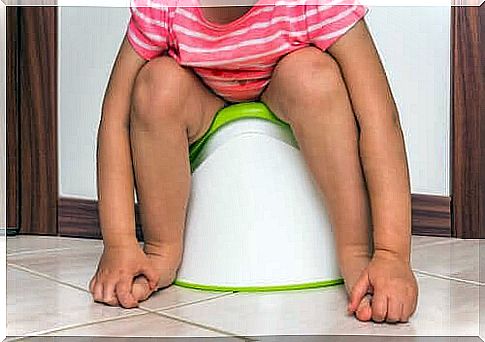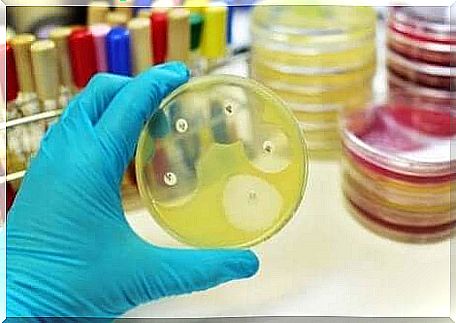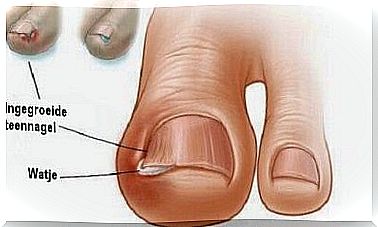A Urinary Tract Infection In Children

Urinary tract infection in children is common. Most commonly, these infections occur when bacteria invade the urinary tract, bladder, and/or kidneys.
It is necessary to visit a GP to start treatment as soon as possible if there are symptoms. This article describes exactly what urinary tract infections are and how they are treated.
A urinary tract infection in children
Urinary tract infections result from the presence or spread of microorganisms in the urinary tract. However, a urinary tract infection without symptoms is another type of infection called asymptomatic bacteriuria.
In general, urinary tract infections are distinguished by where the infection is located. The most common bacteria that develop into urinary tract infections in children are:
- Proteus
- Klebsiella
- Enterobacteria
- Streptococci
- staphylococci
In newborns, they are also common due to Listeria monocytogenes and Enterococcus, among others.
Unfortunately, urinary tract infections in children are common and they can come back again and again. In fact, they can develop long-term complications. Therefore, it is very important to see a pediatrician and start treatment as soon as possible to prevent the urinary tract infection from developing into something serious or long-lasting.
Symptoms

Usually, the symptoms vary depending on the age of the child. It is actually more difficult to detect the symptoms in newborns or children under six months of age. Common symptoms include fever (usually above 37°C) and painful urination.
Some of the most common symptoms include:
- pain, itching, or burning when urinating
- fever
- pain around the bladder
- foul-smelling, cloudy urine that may even contain blood
- irritation
- vomit
- general discomfort
- chills
- a constant need to urinate, even if there is only a small amount of urine
In the case of acute pyelomelitis, when the infection reaches the kidneys, the symptoms are usually more severe. Other symptoms may develop, for example:
- severe cases of fever
- fatigue
- not wanting or being able to eat
- vomit
Complications
Also , urinary tract infections pose some risks and have some potential complications. Some of them are:
- urinary tract problems (for example, blockages of the urinary tract or urethra)
- kidney abnormalities or complications
- vesicoureteral reflux, a condition that causes urine to flow to the kidneys and ureters
How do doctors diagnose a urinary tract infection in children?
The doctor will perform a physical exam and also perform a urinalysis or urine culture. In general, the analysis will allow the specialist to determine the type of infection and choose the best treatment.
How the doctor decides to collect the urine for the analysis depends on the age of the child. In older children, the doctor will simply ask the child to urinate into a sterilized container. In younger children who are still wearing diapers, the doctor will usually use a catheter to obtain the sample.
How are urinary tract infections in children treated?

Urinary tract infections are treated with antibiotics. Sometimes the doctor may ask for another urine test after the treatment to confirm that the infection has been completely eradicated. This will stop the infection from reappearing or spreading to other parts of the body.
In the most severe cases of urinary tract infections, the child may need to be hospitalized. This is especially true if he or she is less than six months old if the infection has affected the kidney, or if the child is dehydrated.
Tips for parents
- When the first symptoms appear, the child should immediately go to the doctor for the correct diagnosis.
- After the diagnosis, follow the doctor’s instructions and recommendations and administer the antibiotics according to the doctor’s advice.
- Keep an eye on the frequency with which the child urinates. When they are old enough to talk, ask them how they feel and if they feel any pain when urinating.
- Let the child drink plenty of water. Avoid having them drink soda, tea, or other beverages. They need to be well hydrated to help flush the infection out of their system.
- To prevent UTIs in children who are still wearing diapers, make sure they are changed regularly to keep the child’s urinary tract hygienic and clean.
- With older children who are already going to the bathroom on their own, make sure they learn proper hygiene rules and habits. For example, we need to teach girls to always wipe themselves from front to back so that bacteria from the rectal area don’t get into the urethra.
- Also choose cotton underwear and avoid synthetic materials that make perspiration difficult.
Finally, urinary tract infections are usually mild and can be easily treated with antibiotics. However, if you have any questions, you should always consult your pediatrician for the best option or advice. Also, don’t forget to instill good hygiene habits in children early on.








